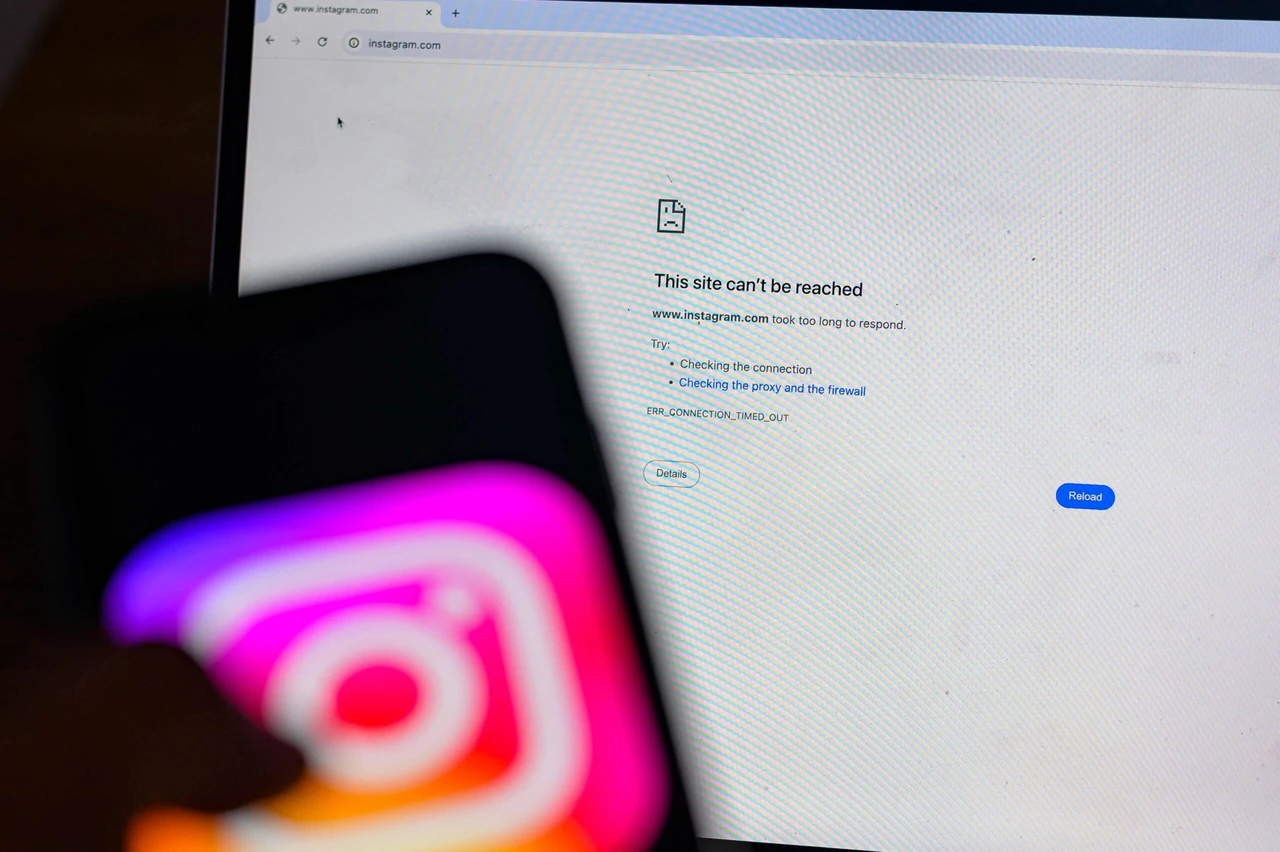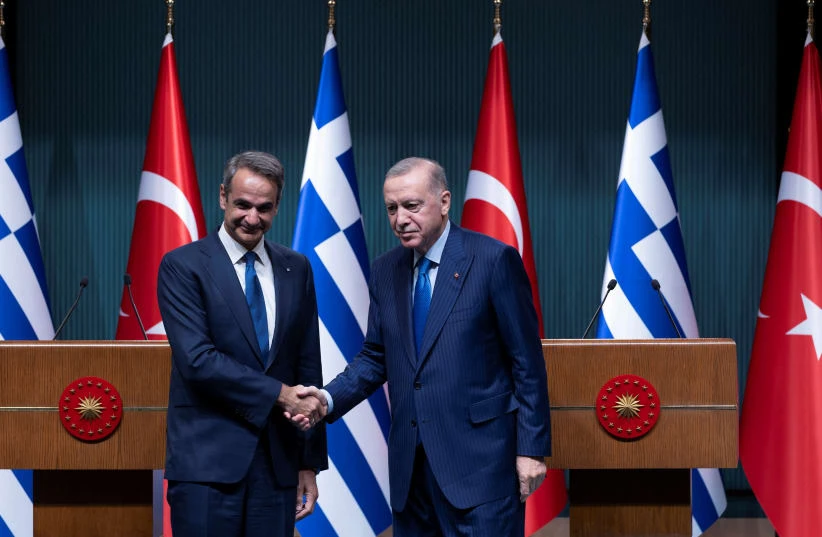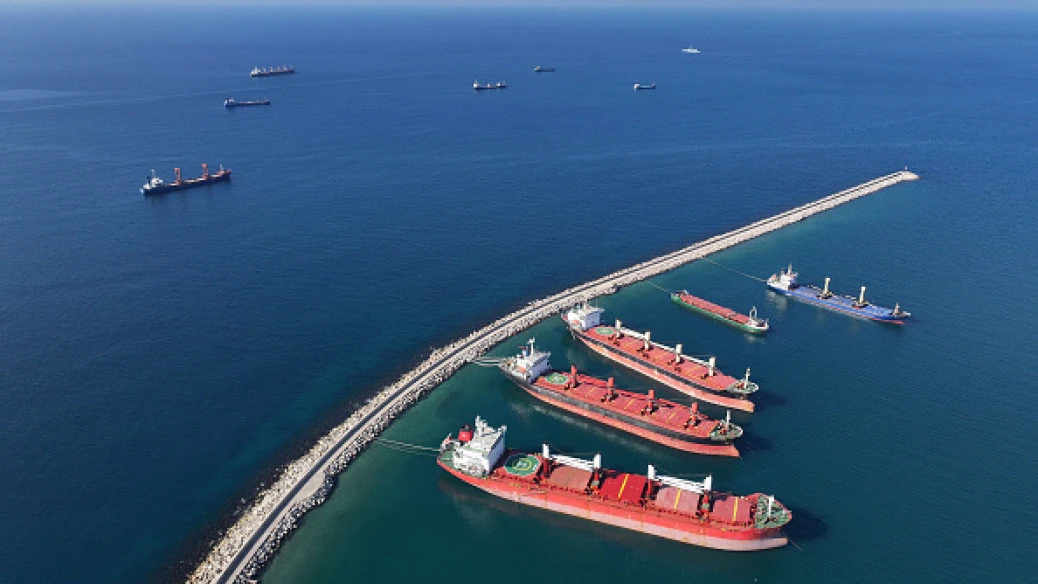Economic retrospective: What did Türkiye lose in 8-day Instagram ban?
 A web page of the Instagram application after it was blocked by Turkish authorities, Istanbul, Türkiye, Aug. 2, 2024. (AFP Photo)
A web page of the Instagram application after it was blocked by Turkish authorities, Istanbul, Türkiye, Aug. 2, 2024. (AFP Photo)
Türkiye lifted its eight-day ban on Instagram, a decision that comes after widespread criticism and economic concerns.
The ban, imposed by the Information and Communication Technologies Authority (BTK) on Aug. 2, was officially lifted at 9:30 p.m. on Aug.10.
During this period, millions of users were cut off from the popular platform, which is integral to social media commerce and communication in the country.
Why Instagram ban matter for Türkiye?
- Instagram is a crucial platform for e-commerce in Türkiye, with around 10% of the country’s total e-commerce conducted through social media channels.
- According to the Ministry of Commerce, 559,412 businesses operate in the country’s e-commerce sector. Of these, 76% are sole proprietorships, 21% are limited companies and 3% are joint-stock companies. The ban threatened these small enterprises, as even a few days without revenue could lead to closures in an already strained economy.
- Instagram, according to the Social App 2024 Report, is the most profitable social media platform per unit of average revenue. With over 2 billion monthly users, it is the fourth most popular social app worldwide.
- The platform is especially crucial for small businesses, influencers, and the service industry, including restaurants, hotels and tourism operators who rely on Instagram for marketing and customer engagement.
- Beyond e-commerce, it is a vital communication tool for millions, with over 60 million users in the country, placing the country fourth globally.
Toll on Turkish economy
- The ban resulted in an estimated loss of ₺17.1 billion, according to Emre Ekmekci, Vice President of the Electronic Commerce Operators’ Association (ETID).
- On a typical day, Instagram drives around ₺930 million in e-commerce revenue, highlighting the substantial daily losses during the ban.
- The Istanbul Planning Agency (IPA) further projected that the ban could result in a weekly economic loss of approximately $396 million, with the service sector, in particular, facing significant setbacks.
- Women entrepreneurs have been particularly hard hit, for instance, award-winning entrepreneurs, earthquake survivors and others who run small businesses have reported a sharp decline in sales. Sinem Kocabas, who won an entrepreneurship award from Halkbank last year, noted that her sales have almost come to a halt as 60% of the revenue for her baby products company operates via Instagram.
Instagram ban goes beyond economy
- Security: The ban on Instagram has not only led to economic losses but also raised concerns about national security, with many users resorting to VPNs to access the platform, risking their personal information being stolen.
- Democracy: Türkiye is among the few countries that have imposed such a ban on social media, drawing comparisons with nations that are not typically seen as democratic. The V-Dem Institute’s 2024 Report reveals that Türkiye ranks 140th among 179 countries, classified as an “Electoral Autocracy.” Similarly, the Economist Intelligence Unit’s 2023 Democracy Index places Türkiye in the “Hybrid Regime” category, ranking 102nd out of 167 countries.
- Trust: The long-term impact of such bans could be severe, potentially deterring Western investors from considering Türkiye as a viable destination for direct investment. As one commentator noted, the arbitrary nature of such decisions raises concerns about what other restrictions might be imposed in the future, creating an uncertain business environment.
How do markets react to ban lift on Instagram?
The business community responded with a mix of relief and concern. While many welcomed the return of Instagram, there are lingering fears about the possibility of future disruptions.
- The Turkish Chamber of Commerce and Industry (TOBB) has called for clearer regulations and better communication between the government and digital platforms to prevent such economic disruptions in the future.
So, why Türkiye imposed ban on Instagram?
Transportation and Infrastructure Minister Abdulkadir Uraloglu emphasized that Türkiye’s stance was not just about censorship but also about protecting the country’s digital sovereignty and public order.
- Uraloglu defended the decision, stating that the ban was enforced because Instagram failed to comply with Turkish laws.
- He noted that this compliance would include swift removal of content promoting terrorism, which was a key demand from Turkish authorities.
- In talks with Instagram officials, Uraloglu received assurances that the platform would address concerns related to criminal activity and collaborate with Turkish authorities to censor content, particularly targeting terrorist organizations like PKK, PYD and Gulenist Terror Group (FETO).



